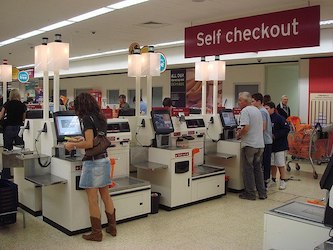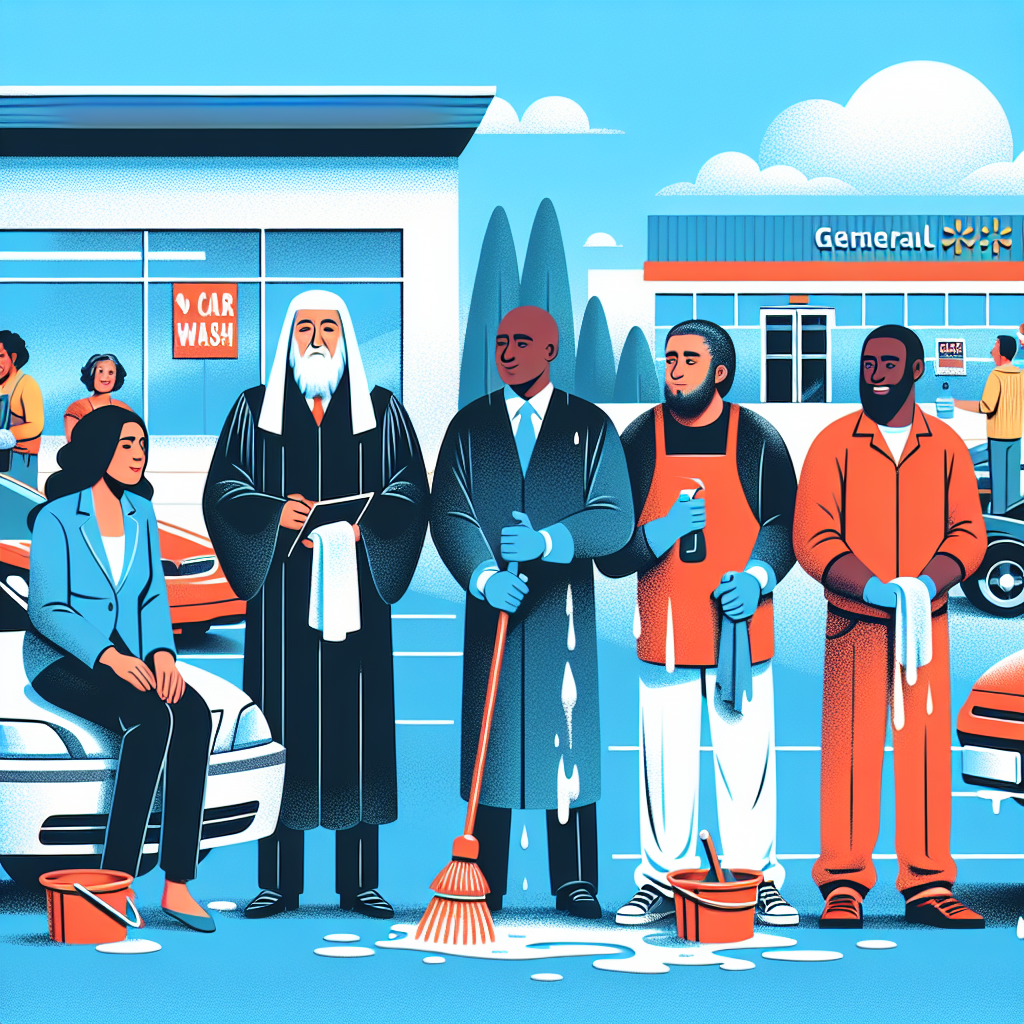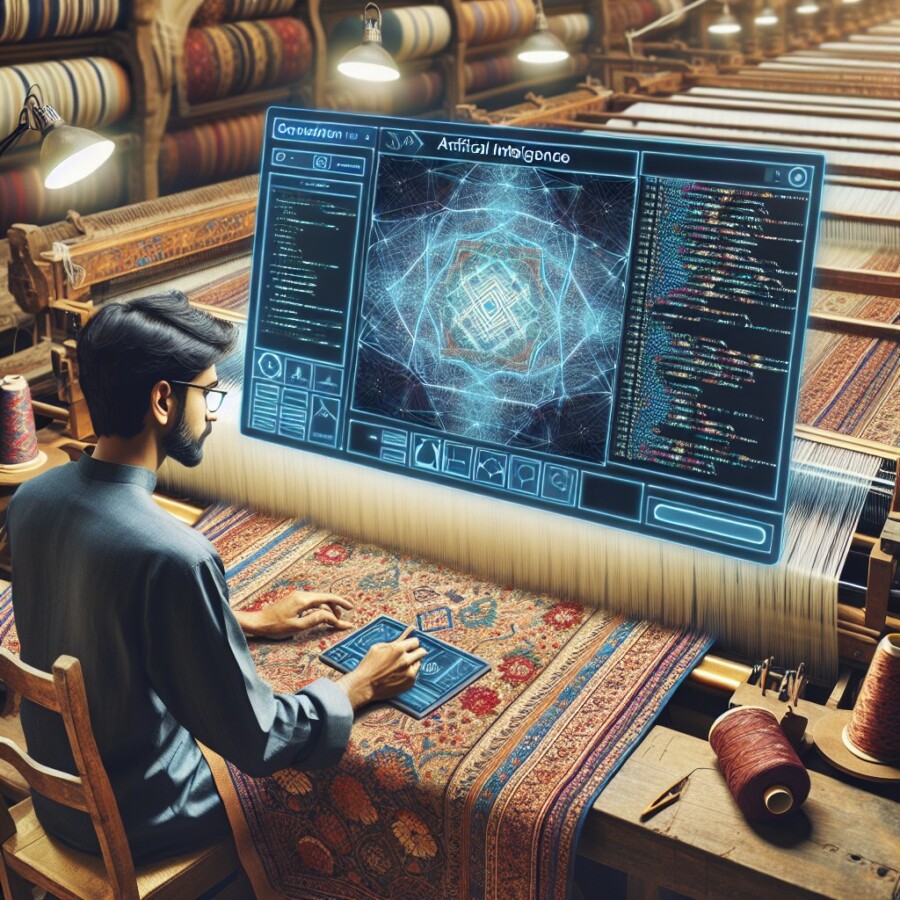A supermarket called Booths in the north of England is taking away almost all the machines where people can scan and pay for their things by themselves. The store has 28 places where you can shop, and they think it’s better if real people help customers at the checkout. They decided to do this because people shopping there didn’t like the machines. They said the machines were slow, didn’t work right sometimes, and made shopping feel less friendly.
The boss of Booths, a man named Nigel Murray, said that people shopping didn’t like using the machines, especially when they had to buy things like apples or bananas that you have to weigh. The store wants to make sure people feel happy and welcome when they shop, so they want real people to help customers instead of using machines that try to think like humans. Some people don’t like this change, but many others are happy because they like talking to the workers and think it’s better when a person helps them.
Self-service machines, where you scan and pay for your things without a cashier, started in the 1990s. Since then, more and more stores have been using them. Some people want more cashiers to help them, but others like using the machines because it can be faster. Booths getting rid of these machines shows that they think it’s really important for people to feel good when they shop and to have someone there to help them.
Original news source: Self-service: Booths supermarket puts staff back behind its tills (BBC)
Listen
Slow
Normal
Fast
Group or Classroom Activities
Warm-up Activities:
– News Summary
Instructions: Divide students into small groups. Have each group read the article and then work together to write a short summary of the article in their own words. Encourage them to focus on the main points: the decision by Booths supermarket, customer reactions, and the contrast between self-service machines and human cashiers.
– Opinion Poll
Instructions: On the board, write down the statement: “Supermarkets should have more human cashiers than self-service machines.” Ask students to move to one side of the room if they agree with the statement, and the other side if they disagree. Give students a chance to share their reasons for their opinions with the class, practicing their speaking skills.
– Vocabulary Pictionary
Instructions: Write down key vocabulary from the article on slips of paper (e.g., supermarket, cashier, self-service, machines, customer, friendly, weigh). Divide the class into two teams. One student from each team will draw a word for their team to guess. The team that guesses the most words correctly wins.
– Role-play: News Reporter
Instructions: Pair up students and assign them roles: one is a news reporter, and the other is either Nigel Murray, a Booths customer, or a Booths store employee. The reporter will interview their partner about the changes at Booths supermarkets. Encourage students to use information from the article and to invent additional details that would make sense in the context.
– Think-Pair-Share
Instructions: Ask a question about the article, such as “Do you prefer using self-service machines or being helped by cashiers when you shop, and why?” Students first think about their answer individually, then pair up with a classmate to discuss their thoughts. Finally, bring the class together and have a few pairs share their discussions with everyone.
Comprehension Questions:
1. What is the name of the supermarket that is taking away the self-checkout machines?
2. Where is the supermarket Booths located?
3. Why did Booths decide to remove the self-service machines?
4. What did customers find difficult about using the self-service machines?
5. Who is the boss of Booths?
6. What does Booths want their customers to feel when they are shopping?
7. When did stores start using self-service machines?
Go to answers ⇩
Listen and Fill in the Gaps:
A supermarket (1)______ Booths in the north of England is taking away almost all the machines where people can scan and pay for their things by themselves. The store has 28 places where you can (2)______, and they think it’s better if real people help customers at the checkout. They decided to do this because people shopping there didn’t (3)______ the machines. They said the machines were slow, didn’t work right sometimes, and made shopping (4)______ less friendly.
The boss of Booths, a man named Nigel Murray, said that people shopping didn’t like using the machines, especially when they had to buy things like apples or (5)______ that you have to weigh. The (6)______ wants to make sure people feel happy and welcome when they shop, so they want real people to help customers instead of using machines that try to (7)______ like humans. Some people don’t like this (8)______, but many others are happy because they like talking to the workers and think it’s better when a person (9)______ them.
Self-service machines, where you scan and pay for your things without a cashier, started in the 1990s. Since then, (10)______ and more stores (11)______ been using them. Some people want more cashiers to (12)______ them, but others like using the machines because it can be faster. Booths getting rid of these machines shows that they think it’s really important for people to feel good when they shop and to have someone there to help them.
Go to answers ⇩
Discussion Questions:
Students can ask a partner these questions, or discuss them as a group.
1. What is a supermarket?
2. How would you feel if a store took away machines and you had to talk to a person to pay?
3. Do you like talking to cashiers when you buy things? Why or why not?
4. Have you ever used a machine to buy things at a store? Was it easy or hard?
5. Do you think it’s important for stores to have people help you instead of machines? Why?
6. How do you feel when a machine doesn’t work right at the store?
7. What is something you like to buy that you have to weigh, like apples or bananas?
8. Would you like it if a store made shopping feel more friendly? Why or why not?
9. Do you think shopping should be fast or friendly? Why?
10. Have you ever had a problem with a machine when shopping? What happened?
11. Do you think other stores should take away their machines too? Why or why not?
12. What makes you feel happy and welcome when you go shopping?
Individual Activities
Vocabulary Meanings:
Match each word to its meaning.
Words:
1. supermarket
2. machines
3. checkout
4. apples
5. cashier
6. stores
7. workers
8. customers
Meanings:
(a) Places where you can buy things
(b) Red or green fruit that grows on trees
(c) People who buy things at the supermarket
(d) A place where you can buy food and other things
(e) Things that do work for you, like a robot
(f) The place where you pay for your things
(g) The person who takes your money when you buy things
(h) People who have a job at the supermarket
Go to answers ⇩
Multiple Choice Questions:
1. Why is the supermarket Booths taking away their self-service machines?
(a) The machines were too fast
(b) People didn’t like using the machines
(c) The machines were too friendly
(d) The machines were too big
2. How many places to shop does Booths have?
(a) 20
(b) 30
(c) 25
(d) 28
3. What did the boss of Booths, Nigel Murray, say people didn’t like about the machines?
(a) They were fast and always worked
(b) They were friendly and helpful
(c) They were slow and didn’t work right
(d) They were big and colorful
4. What kind of items did people have trouble buying with the self-service machines?
(a) Apples or bananas
(b) Canned soup
(c) Chocolate bars
(d) Soda cans
5. When did self-service machines start?
(a) In the 2000s
(b) In the 1980s
(c) In the 1970s
(d) In the 1990s
6. What do some people like about using self-service machines?
(a) It can be slower
(b) It can be faster
(c) It’s more expensive
(d) It’s more difficult
7. What does getting rid of the self-service machines show about Booths?
(a) They think it’s really important for people to feel good when they shop
(b) They want to make shopping feel less friendly
(c) They want to make shopping feel more difficult
(d) They want to make shopping feel faster
8. What do many people like about the change at Booths?
(a) They like talking to the machines
(b) They like shopping alone
(c) They like talking to the workers
(d) They like shopping in a bigger store
Go to answers ⇩
True or False Questions:
1. Booths’ decision to remove most of the self-service machines shows that they prioritize customers’ feelings and want to ensure they have someone to help them while shopping.
2. Self-service machines for scanning and paying started in the 1990s and have become more popular, but some people still prefer having a cashier help them.
3. The decision to keep the machines was made because customers loved them, finding them fast and always working properly.
4. The boss of Booths, Nigel Murray, said that customers especially loved using the machines when buying items like apples or bananas that need to be weighed.
5. A supermarket in the south of England is adding more self-service machines for scanning and paying for items.
6. The store wants to make sure customers feel frustrated and unwelcome while shopping, so they prefer machines to help them instead of real people.
7. Some customers are unhappy about the change, but many others are happy because they prefer talking to the workers and getting help from a person.
8. The supermarket, called Booths, has 28 places to shop and wants real people to help customers at the checkout instead of machines.
Go to answers ⇩
Write a Summary:
Write a summary of this news article in two sentences.
Check your writing now with the best free AI for English writing!
Writing Questions:
Answer the following questions. Write as much as you can for each answer.
Check your answers with our free English writing assistant!
1. What did the Booths supermarket decide to remove from their stores?
2. Why did Booths want to take away the self-checkout machines?
3. What did customers not like about the self-checkout machines?
4. Who is Nigel Murray and what did he say about the change?
5. When did stores start using self-service machines, and why do some people like them?
Answers
Comprehension Question Answers:
1. What is the name of the supermarket that is taking away the self-checkout machines?
The supermarket is called Booths.
2. Where is the supermarket Booths located?
Booths is in the north of England.
3. Why did Booths decide to remove the self-service machines?
Booths took away the machines because customers didn’t like them. They thought the machines were slow, sometimes broken, and made shopping less friendly.
4. What did customers find difficult about using the self-service machines?
Customers found it hard to buy things like apples or bananas that you need to weigh.
5. Who is the boss of Booths?
The boss of Booths is Nigel Murray.
6. What does Booths want their customers to feel when they are shopping?
Booths wants their customers to feel happy and welcome.
7. When did stores start using self-service machines?
Stores started using self-service machines in the 1990s.
Go back to questions ⇧
Listen and Fill in the Gaps Answers:
(1) called
(2) shop
(3) like
(4) feel
(5) bananas
(6) store
(7) think
(8) change
(9) helps
(10) more
(11) have
(12) help
Go back to questions ⇧
Vocabulary Meanings Answers:
1. supermarket
Answer: (d) A place where you can buy food and other things
2. machines
Answer: (e) Things that do work for you, like a robot
3. checkout
Answer: (f) The place where you pay for your things
4. apples
Answer: (b) Red or green fruit that grows on trees
5. cashier
Answer: (g) The person who takes your money when you buy things
6. stores
Answer: (a) Places where you can buy things
7. workers
Answer: (h) People who have a job at the supermarket
8. customers
Answer: (c) People who buy things at the supermarket
Go back to questions ⇧
Multiple Choice Answers:
1. Why is the supermarket Booths taking away their self-service machines?
Answer: (b) People didn’t like using the machines
2. How many places to shop does Booths have?
Answer: (d) 28
3. What did the boss of Booths, Nigel Murray, say people didn’t like about the machines?
Answer: (c) They were slow and didn’t work right
4. What kind of items did people have trouble buying with the self-service machines?
Answer: (a) Apples or bananas
5. When did self-service machines start?
Answer: (d) In the 1990s
6. What do some people like about using self-service machines?
Answer: (b) It can be faster
7. What does getting rid of the self-service machines show about Booths?
Answer: (a) They think it’s really important for people to feel good when they shop
8. What do many people like about the change at Booths?
Answer: (c) They like talking to the workers
Go back to questions ⇧
True or False Answers:
1. Booths’ decision to remove most of the self-service machines shows that they prioritize customers’ feelings and want to ensure they have someone to help them while shopping. (Answer: True)
2. Self-service machines for scanning and paying started in the 1990s and have become more popular, but some people still prefer having a cashier help them. (Answer: True)
3. The decision to keep the machines was made because customers loved them, finding them fast and always working properly. (Answer: False)
4. The boss of Booths, Nigel Murray, said that customers especially loved using the machines when buying items like apples or bananas that need to be weighed. (Answer: False)
5. A supermarket in the south of England is adding more self-service machines for scanning and paying for items. (Answer: False)
6. The store wants to make sure customers feel frustrated and unwelcome while shopping, so they prefer machines to help them instead of real people. (Answer: False)
7. Some customers are unhappy about the change, but many others are happy because they prefer talking to the workers and getting help from a person. (Answer: True)
8. The supermarket, called Booths, has 28 places to shop and wants real people to help customers at the checkout instead of machines. (Answer: True)
Go back to questions ⇧













